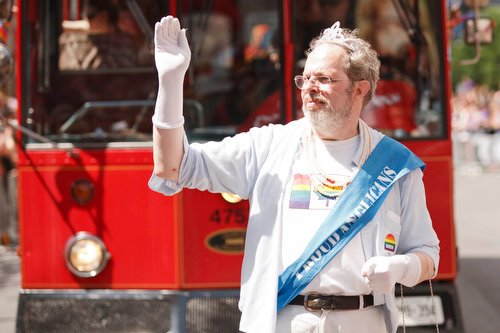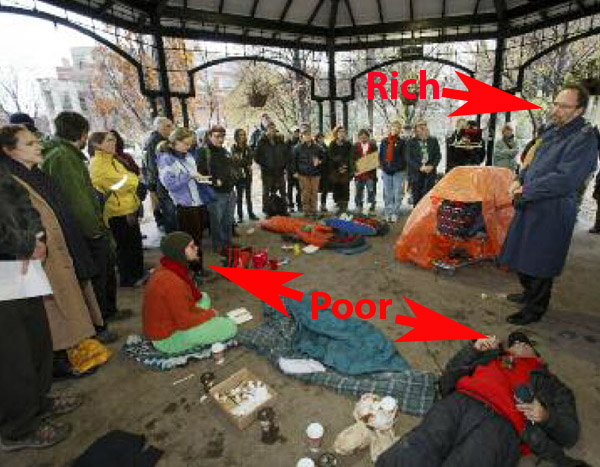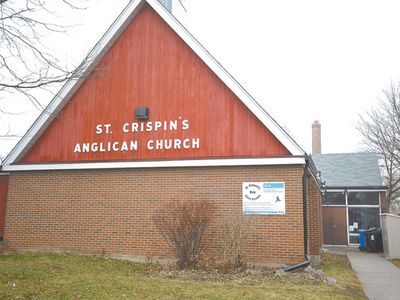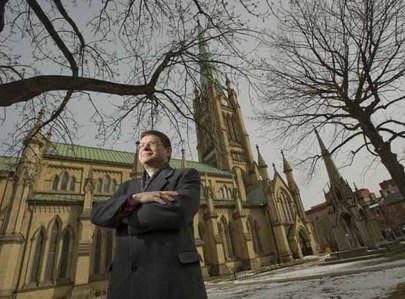Read it all here:
The following guidelines are presented in order to offer a generous pastoral response to stable committed same gender relationships in our diocesan family seeking a blessing of their commitment. The guidelines were formed after consultation with a Commission of clergy and laity across a variety of theological perspectives and opinions seeking to recognize the sensitivity of the issue while being pastorally appropriate. In our discussions, we have seen that there is great diversity among parishes that are opposed to same gender commitments, similar to the diversity found in parishes that are in favour. Recognition of this diversity affirms that parishes which hold similar viewpoints on this subject are not to be painted with one brush, and represent the rich breadth of life in parishes, with parishioners who are theologically astute and deeply committed Christians. The diversity of our diocesan community demonstrates that we are called to witness to the faith in a variety of ways, and though such witness is rooted in differing interpretations and understanding of holy scripture and the tradition, they are recognizably Anglican.
The exercise is obviously being undertaken as an experiment to see how it goes. Or, to put it less kindly, to see how vehement the opposition is (not very, most of those who still care have already left), whether it is likely to provoke sanctions from on high (unlikely, since it uses the weasel designation of “pastoral”) and whether, by hammering the wedge in a little further, the opposition is worn down a little more (probably):
Permission to be given to a few selected parishes – The diocesan bishop will designate a limited number of parishes to be given permission to bless people in same gender commitments.
Criteria for selection:
a. The Diocesan Bishop will select the parishes to be considered for permission
b. Parish will have demonstrated a process of prayer, education, consultation, discernment and consensus development that widely engages the parish community.2
c. When the Priest, Churchwardens, and Advisory Board/Parish Council feel that consensus has been reached, the Churchwardens will write a letter to the Diocesan Bishop outlining the process and decision reached and request permission be granted.
d. The Priest will separately communicate his/her support of such a decision and concurrence that the parish is ready to participate in accordance with these guidelines. If either the priest or Churchwardens do not concur then the process ceases.
e. The Diocesan Bishop, at his discretion, may grant permission to one or more of these parishes.
f. Permission will be given for a two year period. At the end of that period, permission may be renewed or withdrawn after review.
g. Permission is granted for the clergy/parish relationship at that time. When a cleric leaves a designated parish the designation will be revisited with the Diocesan Bishop upon the appointment of a new cleric.
h. The Area Bishop will be kept informed through the process and consulted prior to a final decision.
i. The parish will be expected to report annually to the diocesan bishop through the office of the Area Bishop indicating the number of blessings and offering evaluative remarks on the significance of the practice for the mission of the parish.
Those in a same-sex relationship don’t have to be civilly married to receive a blessing:
Same Gender Blessings – This pastoral response is extended to couples in our midst who seek to live in mutual love and faithfulness in a stable, long-term committed relationship. A blessing may be made available to couples who are not civilly married as the blessing is not considered to reflect, or to be understood as, marriage.
a. The blessing of any same gender relationship is expected to be part of an existing pastoral relationship with a priest and local congregation.
b. At least one of the couple should be baptized.
Clergy who disagree with same-sex blessings are still required to implicitly condone them through referrals:
Clergy who object to blessing same gender relationships will be asked to exercise pastoral generosity by referring same gender couples seeking a blessing, if requested, to the Area Bishop.
And let’s be sure we all understand that this has nothing to do with same-sex marriage. Nothing at all. One step at a time.
In order to be clearly distinguished from a marriage liturgy, the act of worship will NOT include the following:
i. An exchange of consents. It is presumed that participation in this service is sufficient consent.
ii. Opportunity for public legal or canonical objections. However the officiating priest may not bless the couple if either is legally married to someone else.
iii. A declaration of union.
iv. No rite of civil marriage will be conducted in the context of the blessing act of worship.
v. No signing of a marriage register will take place.
vi. A nuptial blessing – understood as any of the prayers found on page 567 of the Book of Common Prayer (1962) or on page 534-535 and 548 – 549 of the Book of Alternative Service (1985) or any blessings found in the marriage liturgies of other provinces of the Anglican Communion.
h/t to my underpaid research assistant.
Like this:
Like Loading...
 Here is Rev. Andrea Budgey sprinkling onlookers from her aspergillum. As Chris Ambidge (the one in the tiara) declared: “Who woulda thought evangelism could be this much fun?”
Here is Rev. Andrea Budgey sprinkling onlookers from her aspergillum. As Chris Ambidge (the one in the tiara) declared: “Who woulda thought evangelism could be this much fun?”




 slogans and living simply.
slogans and living simply.